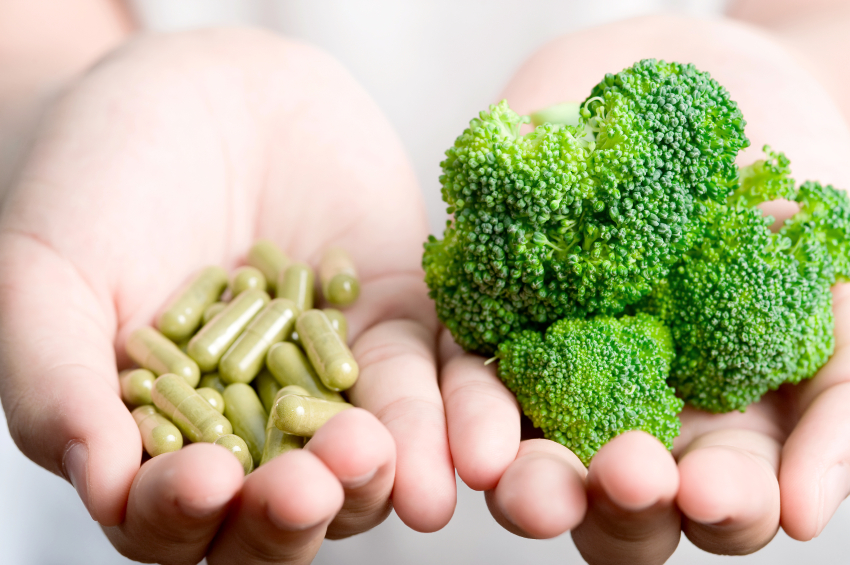Lose Weight > Common Sense To Lose Weight > Common Sense Article > Herb Games - Exposing the Top 10 Myths about Herbal Remedies
Herb Games - Exposing the Top 10 Myths about Herbal Remedies
It seems that everywhere we look, there are advertisements for quick-fix solutions to just about any health challenge imaginable. Herbal remedies are touted to help with anything from weight loss to relief from long-term health problems.
Can vitamins really provide all the energy we need? Do supplements really work? Are they worth the cost? How safe are they?
While nothing beats a well balanced, whole food diet with plenty of liquids (especially water), regular exercise, and proper rest for feeling and looking your best, herbal remedies - be they in the form of pure herbs, vitamins, or herbal supplements - really are capable of improving your quality of life. However, It is extremely crucial that you are able to go past the hype and know how to really know fact from fiction.
Before you take any herb, vitamin, or other nutritional supplement, you should ask yourself what's in it and what effect it will have on you. Here are some common myths and facts about herbal, vitamin, and nutritional supplements that can assist in making informed decisions about using these products.
MYTH #1: Vitamins and herbal supplements are completely safe:
This is not necessarily true. Too much of anything can be extremely dangerous.
It's really important to know things like how the herbs were picked and processed, whether
traditional herbal recipes were strictly followed, and proper dosage amounts
to help determine whether or not they are safe.
MYTH #2: All herbal products are pure and natural.
Sometimes things that claim to be natural herbal supplements are not pure or natural at all. In fact, some of them have chemicals in them. One common occurence that comes
to mind is how many natural skin care products have the words aloe vera on the label.
A quick look at the ingredients often shows us that there are also so many other
harmful things included that it literally negates the inclusion of anything pure at all.
Some horrible manufacturers also switch ingredients on you just to get you to buy
their product or if the genuine herb is in short supply. This has been seen the most
commonly with St. John's Wort.
MYTH #3: Herbs have no side-effects.
Please beware of this dangerours myth. This isn't true all of the time either.
For example, some imported herbs are created with mercury sulfide which is commonly used as a cheap antibiotic in the third world and can cause nerve and kidney damage. Not to mention that most herbs naturally contain natural
chemical properties, which provide their healing qualities and could pose a potential risk.
For example there are some herbs that are actually abortifacients (causes a fetus to be aborted) in their natural form. This is a good reason to know all of the doses and uses of an herb as well as their contraindications aspects to be wary of).
MYTH #4: All herbs are just about the same.
This is an unwise assumption, because if that was true, we would use just one herb for everything. Herbs have a lot of differences depending on how and where they are grown, harvested and processed and what they are being
used for. This changes it's composition. There are even specific uses for various parts of some plants (ie. vine, leaf, root, etc.)
MYTH # 5: Selling herbs is more ethical than selling pharmaceuticals.
Unfortunately, this is changing! The herb business is currently a competitive four
billion dollar industry. Any business - especially one that has the money making
potential that herbal remedies do - has the potential to be corrupt.
MYTH #6: Your doctor knows what is best for you.
It is YOUR body, and you have got to think for yourself. Your doctor may not believe in herbal medicines and supplements and because of this he/she might give you bad advice about them. The fact is that you have to do what is best for you.
MYTH #7: Chinaese herbal cures are rarer.
Actually, there are thousands of plant species that contain scientifically proven healing properties located all over the world. Some are strictly Chinese, but many are not.
Keep in mind, all indigenous communities have a natural healing legacy.
It is common to find many helpful herbs, literally in your own back yard, if you
know what to look for. A good indicator of this is the long tradition and use of herbs and natural healing in the Native American culture.
MYTH #8: You can only find natural herbs in the forests.
Not even close! Every company that makes or sells a certain healing herb wants you to think this way so that you will not seek the herb anywhere else. The fact of the matter is that you can find many herbs in mainstream stores, health food stores and even in the parks or fields in every city in the world. Health food stores are a great place to find herbs.
If you prefer not to pay for certain remedies, you can often cultivate your own herb garden. There are many books on the identification and growing of herbs.
MYTH #9: The FDA wants to take over herbal medicines for our sake.
Actually, the FDA wants to control the use of natural herbs because it is such a money making industry and they want to regulate it. What this means is that the FDA realizes that herbal supplements and treatments is a billion dollar
empire and they want their cut!
MYTH #10: All herbal pills are safe to use.
This is just wrong! Just because a manufacturer claims they are safe doesn't mean that they are safe to abuse. Allergies and health conditions have to be taken into account before you injest any whole food, herb, or supplement.
All herbs have a potential to harm when they are taken wrongly or by people with certain health problems. You have to check with your health practitioner and read about herbs before you take them. It just goes to show you that common sense has to be used right along with these supplements.
Related Articles
-
Do Low Calorie Diets Help In Weight Loss: The Facts For Healthy Life
Weight Loss is simple, but it is not effortless and can be a challeng
-
Some Of The Causes Of Unexplained Weight Gain
Unexplained weight gain happens when people undergo or experience subs
-
What Can Brazil Teach The U.S. About Ethanol?
Over 1200 people turned up on June 5th in Sao Paulo, Brazil, for the
-
Kirstie Alley Debuts Organic Liaison Weight Loss System on Oprah
Kirstie Alley, 59, has launched a new weight loss system based on her
-
Skinny Summer Cocktails
A delicious, refreshing cocktail can help you relax after a long day.
-
Why Some Diets Don't Work
Diets that promise fast weight loss are a lie, because we cant shed 10
- DON'T MISS
- A Weightloss Diet That
- Do Certain Food Really Help You Burn Fat?
- Pure African Mango Extract Diet Pill Review – Can It Live Up To The Hype?
- McHenry County Weight Loss Program Of Your Choice
- Achieve Ultimate Weight LossHealth Fitness Success Implementing Simple Yet Vital Principles
- 7 Facts About Cellulite You Need To Know
- Throw Out The Scale
- 15 Foods That Burn Belly Fat
- Potato You Have Been Around!
- How to Lose Weight Without Dieting




